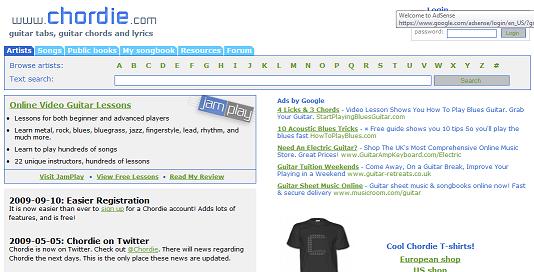We have seen in one of my videos how to transpose music. I have stumbled a couple of days ago on a site that has on preview this little nifty software, soon to be released for free (this is what the site states, don’t quote me on that!)
You can check out the site here:
http://www.theoreticallycorrect.com/transposer/index.html

It basically promises a very fast and accurate transposition of chord in songs that we can find online. It looks a bit like a text editor that will recognise the chords, just check out the quick demo video on the site and you’ll see what I mean.
It is quite a handy way for songwriters, beginner guitarists or singers that want to find a way to play their favourite song in a more comfortable key.
In a way it is what the site chordie has online, in a portable format, in case you had no connection.

These are great tools, but in my opinion not to be used without knowing the theory behind transposing music, a necessary skill if you are serious about making music.







